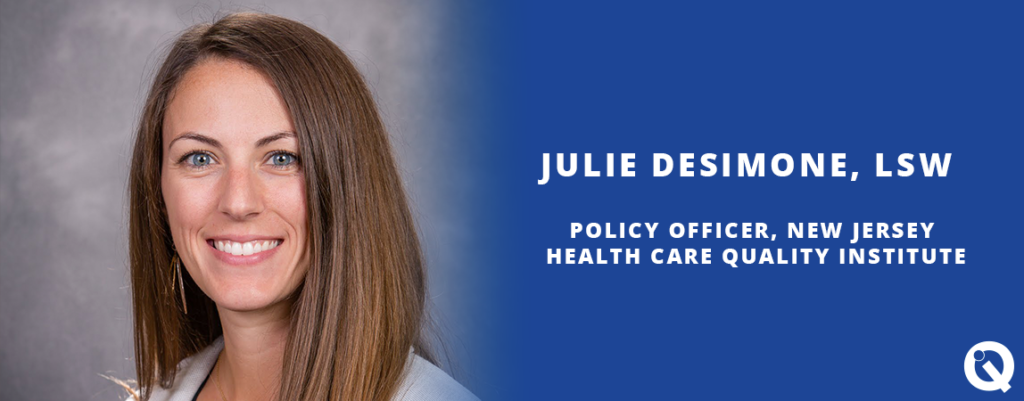As program officer for the Mayors Wellness Campaign (MWC), Julie DeSimone, LSW, provides mayors and community leaders with valuable tools and expertise to help residents live healthier lives.
Can you tell us about the wide-ranging experience that supports your work with the Quality Institute’s Mayors Wellness Campaign?
After finishing my Master of Social Work, with a concentration in Nonprofit and Public Management from Rutgers University, I worked as a program director at a nonprofit agency serving youth and their families in Somerset County. I was able to understand what families struggled with, and the complex needs of the community. I realized I wanted to affect change on a more macro level, and that led me to work in human services in Somerset County. I was able to see how when systems work successfully together residents benefit, and I also saw the barriers to getting the needs of the community met. At its best, local government can really be a catalyst for change.
How does your work in local government inform your work with MWC?
It gave me the opportunity to see how government can partner with all of the different stakeholders: other local governments, nonprofit organizations, and its own residents to provide programming that’s really needed. And I think it taught me that you need to ask communities what they need before you create your programming. That’s something that the MWC already is doing. We’ll continue to use local data and resident feedback to inform community programming and policies.
As part of the MWC, what is your vision for how local government can play a role improving the health of communities — and how the MWC can support those improvements?
Local government has the power to really invigorate the community, and give the support that’s needed for longstanding change. I think residents really need to be the ones leading the charge, especially in New Jersey, where we have so many diverse, small municipalities and mayors’ time and resources are limited. The MWC can support community efforts by providing evidence-based tools and resources for communities to assess their needs and to move initiatives forward. We’re seeing a shift in what people think of when they think of health. So yes, we want people to increase their physical activity and eat healthy foods. But we’re also seeing people taking on stigma around mental health and substance use. We’re seeing people working to better serve residents with disabilities through the MWC. And we’re also thinking how youth specifically are affected by the overall health and wellness of their communities.
You have experience working with Social Determinants of Health in your previous positions. Can you tell us how that experience translates to the work you’re doing with the MWC?
I think shifting the narrative around mental health and substance use, and really looking at mental health as a part of overall health, is one important area. It’s about making sure we’re supporting the whole person and not just one piece of their health — the essentials of the Social Determinants of Health model. Similarly, supporting affordable housing, access to healthy and affordable food, and other basic needs is the first step to improving health, and providing community members with a basic quality of life. Once these basic needs are met, people have the space to improve other areas of their lives.
Finally, can you tell us something about you outside of work?
Well, I’m an ice hockey coach for a co-ed team of 10-year-olds. I like encouraging kids to be part of a team and to also stay active. There’s a lot that can be learned from playing sports. So that’s part of why I like to do that — and to give back. I also love to cook, do yoga, hike, and bike.

